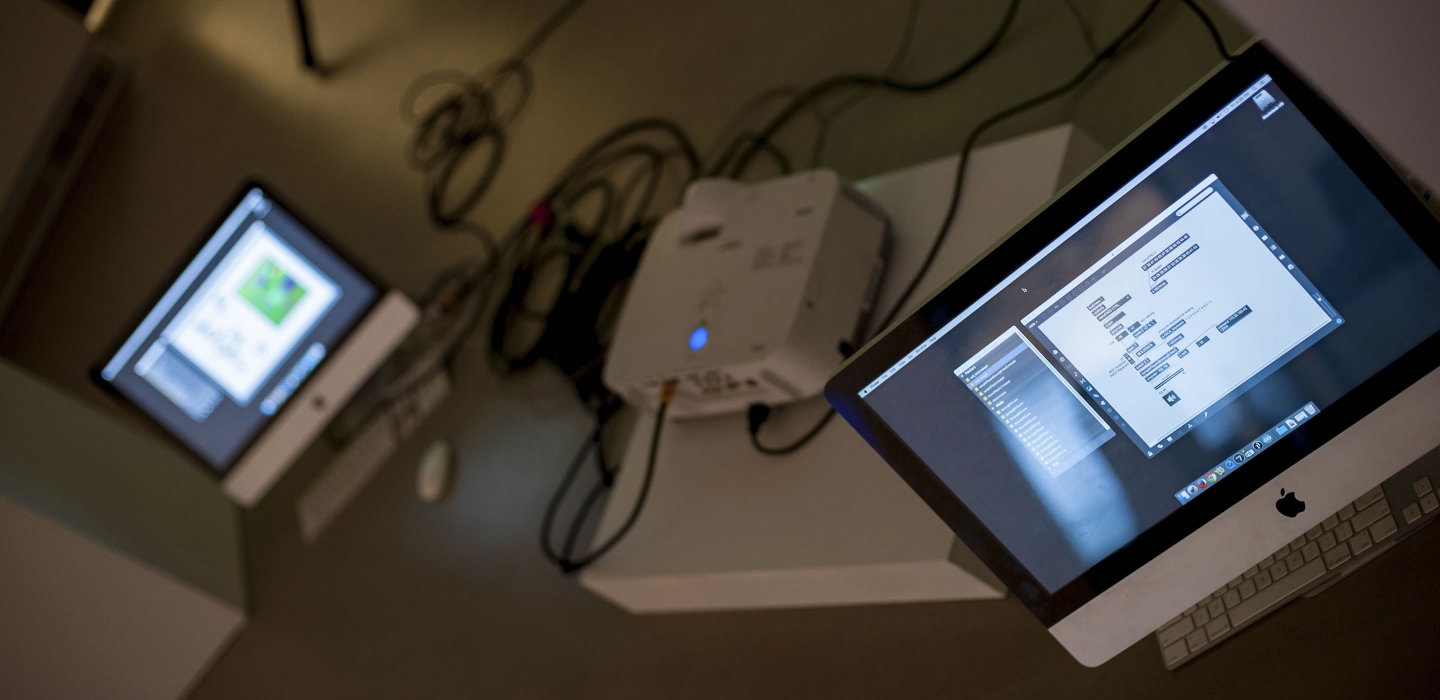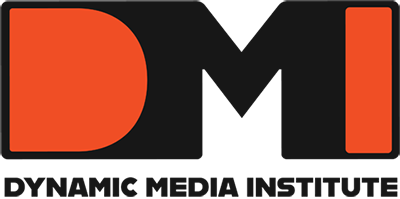
Your projects come to life through prototyping. Some require only the simplest of prototypes — cut paper and marker to simulate a web site app or a cardboard box with wheels to model a robot. Other projects may require complex prototypes — customized circuitry to trigger an interaction or extensive programming to visualize a database. The prototype simply needs to make sense for the project.
DMI favors no particular technology. Rather, the program reacts to your specific needs. Our faculty, advisors, and alumni are fluent with most digital tools ranging from Processing, JavaScript, jQuery, iOS, and PHP to Arduino boards, LEDs, RFIDs, and the latest in sensor technologies.
You also enjoy access to an array of technology at MassArt including dedicated workstations, touch screens, high-definition projectors, professional video cameras, synthesizers, wide format ink jet printers and plotters, high-resolution digital SLRs, and a green screen studio.
I used to think sketching could only be done on paper, but DMI introduced me to the idea of sketching in code — quickly programming interactive concepts and refining them bit by bit. I shifted from mocking up static UIs in Photoshop to coding my own designs in Processing, and the change has been liberating. Not only is prototyping necessary for user testing and critique, but the process of creating a working prototype deepens your knowledge of your design and highlights any flaws. If a picture is worth 1,000 words, then a prototype is worth 1,000 pictures.
Scott Murray (MFA 2010)
Having a great project idea. Cool! How about presenting it tomorrow…um…ugh…
Think big but work small is the idea behind prototyping here at DMI. Like wireframe a website, prototyping is my thinking tool. It’s a way I explore the margin. I always break down my big idea into a series of smaller experimental projects and work on one small project at a time. I learn from the outcome and adjust my direction, and work on another small project. Then I get my final product when I combine all the small steps together.
Prototyping is key to surviving the program. it can get your idea stand for itself and provide the context for your thinking. Just keep in mind: always be making. And enjoy the surprise from the prototyping.
Alex Wang (MFA 2011)
My background, in fine art photography and painting, instilled a valued process of making and using objects. As a result, prototyping has been an enjoyable and essential part of my experience at DMI. The ability to bring my projects to life through simple, small prototypes is invigorating. I’ve created physical prototypes for Studio I and II projects as well as elective projects like “Petals”, an animated painting, in which I used Processing and sensors. This process has allowed for user testing and learning about programming and interesting platforms.
Nicole Tariverdian (MFA 2012)
